PsychNewsDaily Publishers
100 Summit Drive
Burlington, MA, 01803
Telephone: (320) 349-2484
PsychNewsDaily Publishers
100 Summit Drive
Burlington, MA, 01803
Telephone: (320) 349-2484
Genetic variations influence caffeine metabolism, taste sensitivity, and overall coffee consumption, affecting individual preferences and health outcomes related to caffeine intake.
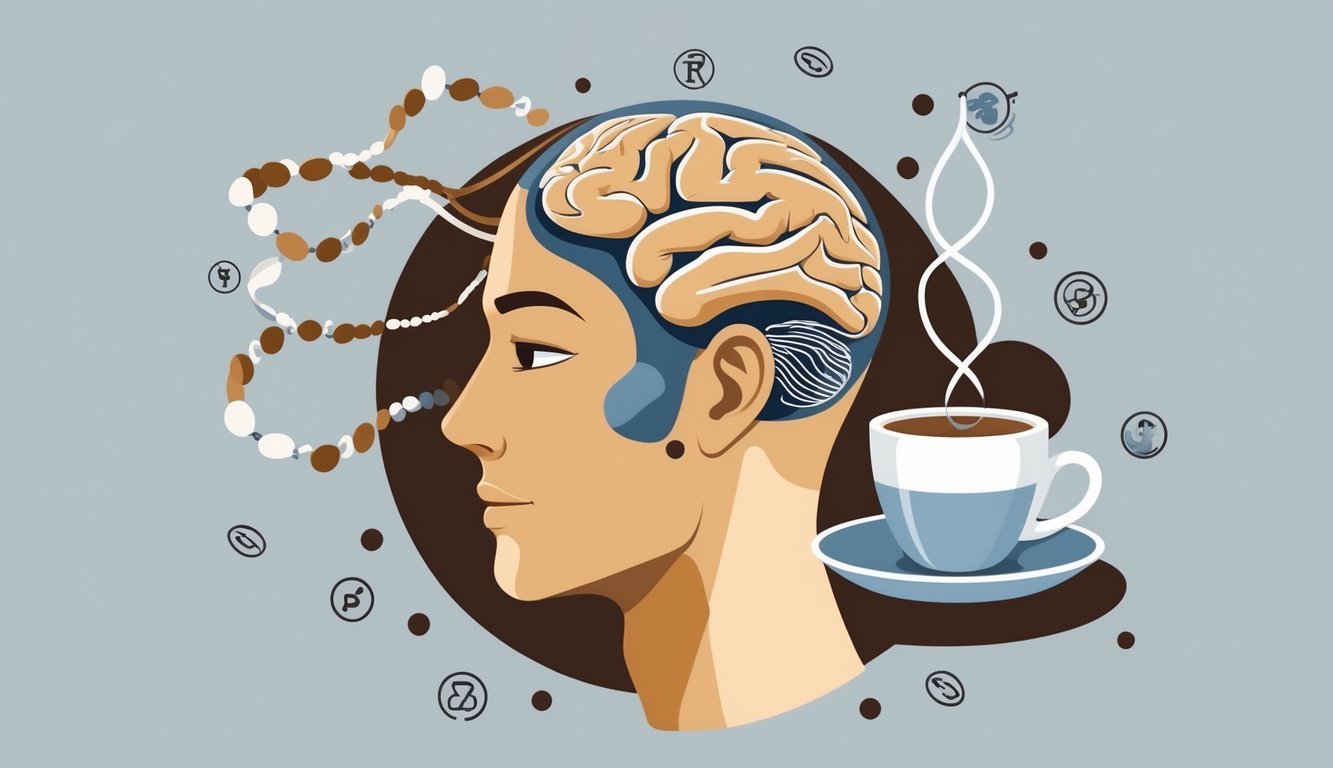
Did you ever wonder why you love or hate coffee? Turns out, your genes might be behind it.
Some folks crave coffee, while others just skip it. Science actually points to genetics as a big reason for this. Your DNA can shape how your body deals with caffeine and whether you enjoy coffee’s flavor, especially that sharp bitterness in black coffee.
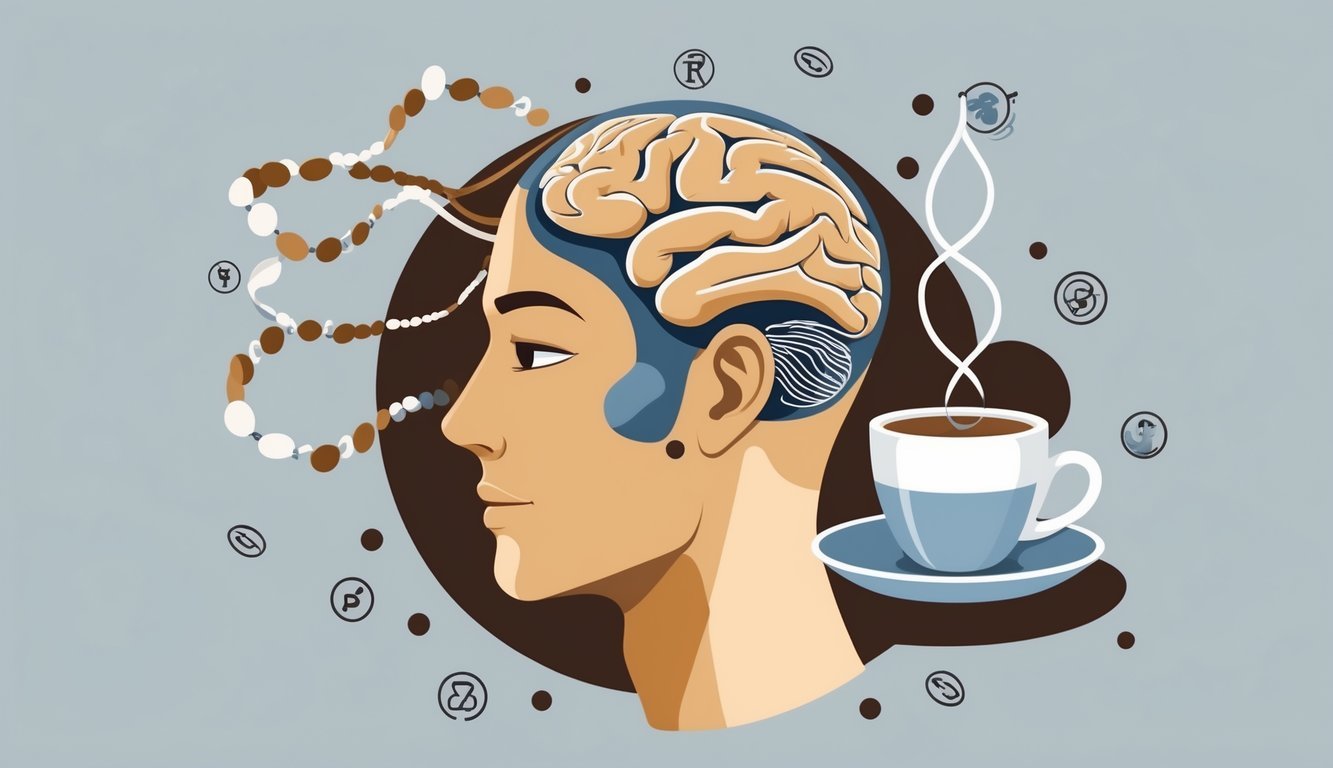
Certain gene variations let you tolerate caffeine better, so you can sip more coffee without getting jittery. Others get sensitive to coffee’s bitterness or stimulation because their genes say so.
This natural difference explains why some people practically live at the coffee shop, while others just can’t get into it.
If you understand how your genes play into coffee, you might also see how your body handles caffeine overall. Maybe you’ll even start to think differently about your daily cup.
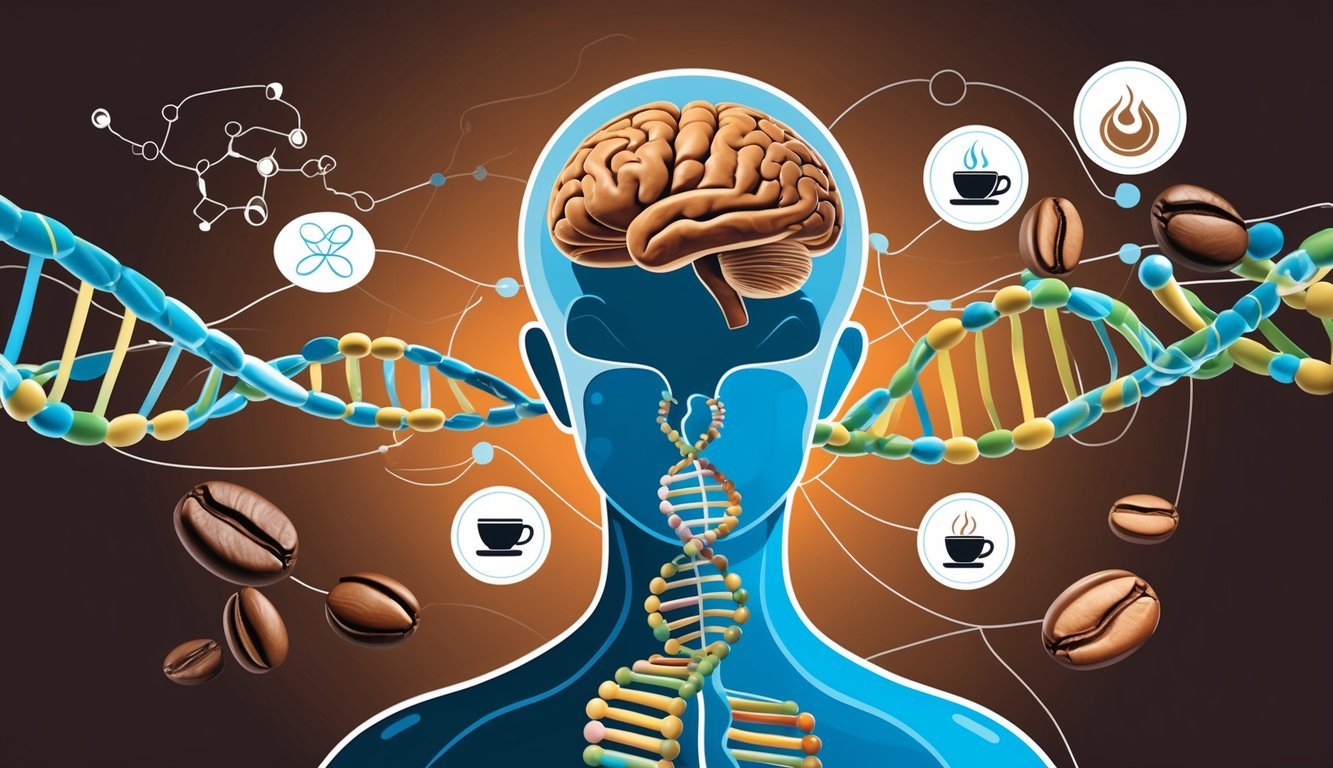
Your genes influence your love for coffee, how much you drink, and even how caffeine hits you. They affect how your body processes caffeine and how your brain responds.
Scientists study coffee intake genetics to figure out how certain genes shape your coffee habits. Some genes impact caffeine metabolism, which means how fast your body breaks down caffeine.
If you break down caffeine quickly, you might enjoy more coffee and still sleep fine. Other genes change how caffeine affects your brain’s reward system.
That’s why some people feel pumped or relaxed after coffee, while others just don’t. These genetic effects all come together to create your coffee preference and how much you drink.
Gene variants are little changes in your DNA that shape your coffee habits. The CYP1A2 gene, for example, controls how fast your liver breaks down caffeine.
People who metabolize caffeine faster usually drink more coffee. Other variants near genes like BDNF and MLXIPL affect your brain’s response and metabolism.
Variants in SLC6A4 can mess with serotonin and mood, which might also change how you feel about coffee. All these gene variants mix together to make your coffee routine unique—maybe you’re an espresso fan, or maybe you stick to decaf.
Big genetic studies, like genome-wide association studies (GWAS), have looked at thousands of people to find genes tied to coffee habits. They use data from places like the UK Biobank and 23andMe.
Researchers found several new genetic regions linked to coffee consumption. For instance, variants near GCKR and CYP1A2 show strong connections to how much coffee people drink.
These studies help scientists see how your genes influence your coffee habits and how much caffeine you can handle.
A few genes really stand out when it comes to coffee. The CYP1A2 gene controls how fast you break down caffeine, so it can make you a slow or fast metabolizer.
The BDNF gene ties into brain function and might help explain why coffee feels so rewarding. SLC6A4 affects serotonin, which can shift your mood and how you react to coffee.
Variants near MLXIPL and GCKR influence metabolism and energy use, which shapes your coffee intake. If you know about these genes, you might understand why you drink a lot of coffee—or why you avoid it.
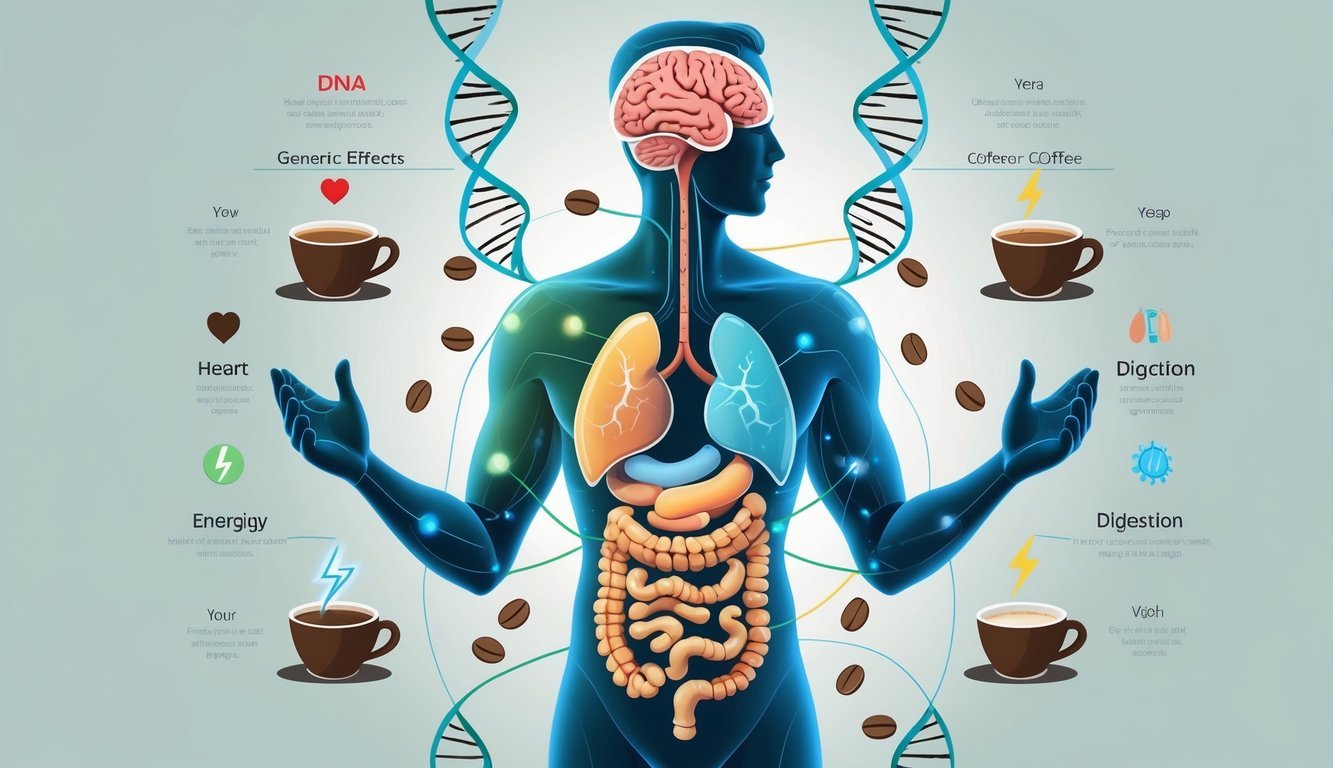
Your genes don’t just shape how much coffee you want—they also affect how it hits your health. These genetic differences link up with things like blood pressure, obesity, and mental health issues.
Certain genes change how your body reacts to caffeine, which can mess with your blood pressure. If your genes push you to drink lots of coffee, you might face a higher risk for high blood pressure and stroke.
Studies also link coffee-related genes to obesity. People with these genes may gain weight more easily, maybe because of how they handle caffeine or just their lifestyle.
If you know your genetic makeup, you might keep a closer eye on your coffee intake to dodge problems like obesity and heart issues.
Genes that shape your coffee habits also connect to mental health issues like depression and anxiety. Some genetic markers linked to heavy coffee drinking overlap with those for psychiatric conditions, like bipolar disorder.
Caffeine interacts with your brain differently depending on your genes. That could be why some people get energized, while others feel anxious after coffee.
If mental health runs in your family, pay attention to how coffee affects your mood. Adjust your intake if you need to. Genetics also tie coffee use to a higher risk for substance use, which matters if you’re dealing with addiction or mental health struggles.
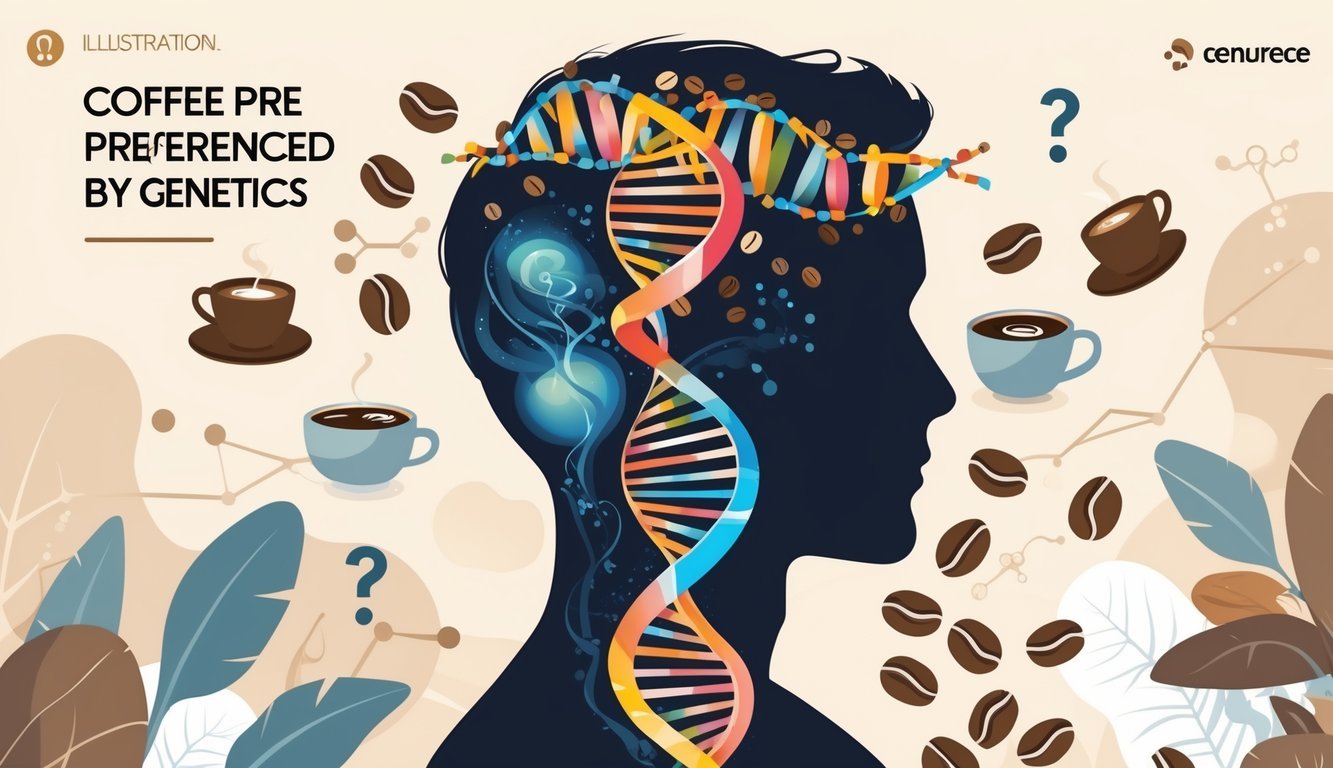
Your genes influence how your body breaks down caffeine and how you feel it. Some genes can change how much coffee you want and how bitter it tastes.
Your genes control enzymes that break down caffeine. This changes how quickly caffeine leaves your body and how strong its effects are.
The CYP1A2 gene makes an enzyme that mostly handles caffeine metabolism. If you have a fast version, you’ll probably drink more coffee since caffeine clears out faster.
Genetic tests can give you an idea of how your body processes caffeine. Still, your perfect coffee amount depends on your own tolerance and habits too.
Yes, some gene variants link to higher or lower coffee intake. They might change how you break down caffeine or how bitter coffee tastes.
GWAS have found several gene regions tied to coffee drinking. These include genes connected to taste and how you process caffeine.
Genetics definitely play a role in how caffeine affects your heart, your sleep, and even your overall health.
If you have certain gene variants, you might just be more sensitive to caffeine’s effects. Kind of makes you wonder if that extra cup of coffee is worth it, doesn’t it?